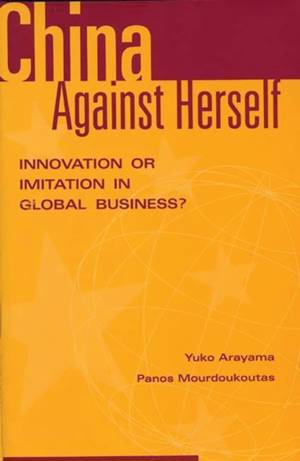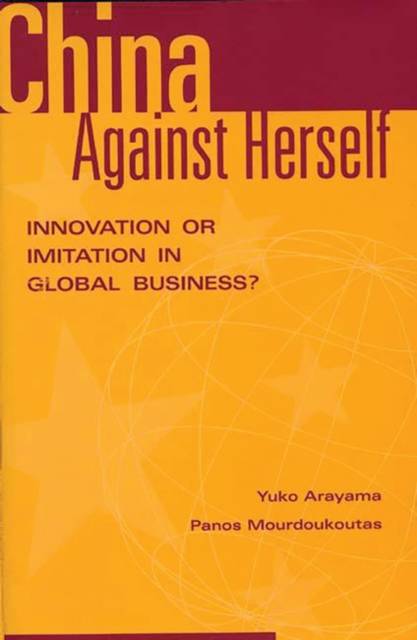
- Afhalen na 1 uur in een winkel met voorraad
- Gratis thuislevering in België vanaf € 30
- Ruim aanbod met 7 miljoen producten
- Afhalen na 1 uur in een winkel met voorraad
- Gratis thuislevering in België vanaf € 30
- Ruim aanbod met 7 miljoen producten
Zoeken
China Against Herself
Innovation or Imitation in Global Business?
Yuko Arayama, Panos Mourdoukoutas
Hardcover | Engels
€ 127,45
+ 254 punten
Omschrijving
Will China's growing economy outstrip the economic power of Japan and the advanced industrialized democracies of the West? No. For China to continue its phenomenal growth and develop sustainable comparative advantage, it needs to sustain a huge world market for its products and the technological and organizational capacity for innovation. According to Arayama and Mourdoukoutas, because China cannot secure these economic conditions, its role in the world economy will be limited to that of a mass producer of certain types of products. China's strength is its low-cost, mass-production capacity--but the lack of an ingrained capacity to innovate constrains China to transforming foreign innovations into lower-priced imitations. Arayama and Mourdoukoutas detail their argument carefully and precisely, in a well-written analysis that will be necessary reading for business decision makers and their academic colleagues, and for others who are seriously interested in the future of world business.
Specificaties
Betrokkenen
- Auteur(s):
- Uitgeverij:
Inhoud
- Aantal bladzijden:
- 152
- Taal:
- Engels
Eigenschappen
- Productcode (EAN):
- 9781567202458
- Verschijningsdatum:
- 28/02/1999
- Uitvoering:
- Hardcover
- Formaat:
- Genaaid
- Afmetingen:
- 162 mm x 244 mm
- Gewicht:
- 458 g

Alleen bij Standaard Boekhandel
+ 254 punten op je klantenkaart van Standaard Boekhandel
Beoordelingen
We publiceren alleen reviews die voldoen aan de voorwaarden voor reviews. Bekijk onze voorwaarden voor reviews.











